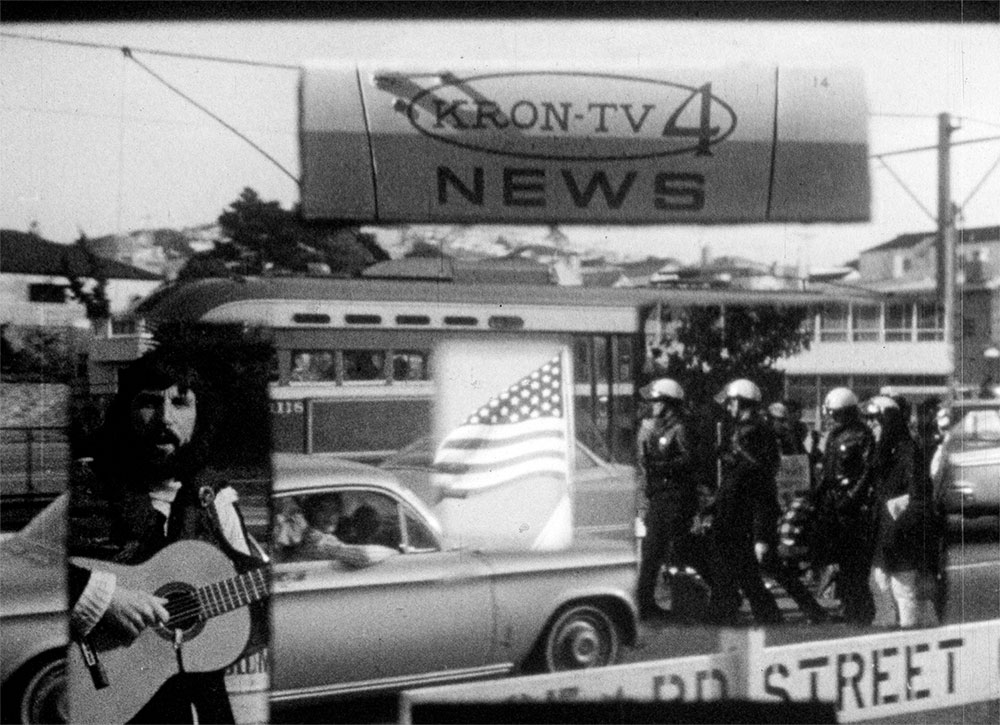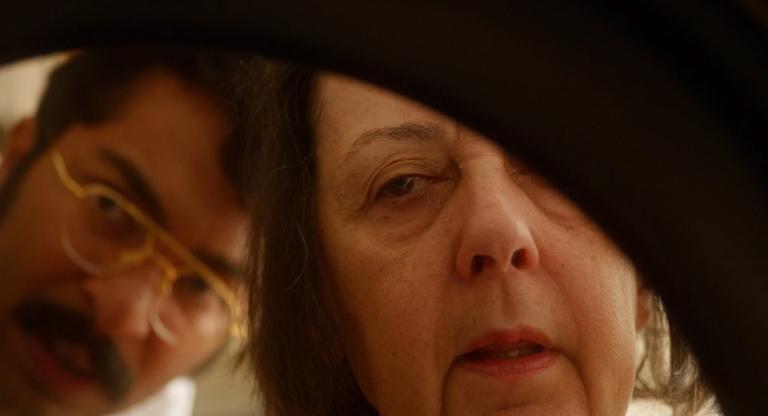High School Rising, San Francisco State: On Strike, and Community Control, three short films produced by the Newsreel collective in 1969, share one singular concern: how cinema, divorcing itself from its bourgeois appropriation by the culture industry, can aid revolutionary movements in every corner of university campuses and urban centers in the United States. Although the subject matter varies, they converge under one stylistic framework: a guerilla, militant adaptation of cinéma vérité. Unlike their structuralist counterparts across the Atlantic, such as Chris Marker and the Dziga Vertov Group, who enjoyed funding and support from state cultural agencies, the Newsreel collective had ultra-low budgets, a skeleton crew of semi-amateurs, and could not rely on the use of props or scene dressing. Shot in real time and in situ, these films offer a faithful presentation of student- and teacher-led leftist opposition movements against the institutionalization of disciplinary apparatus in American education, from Third World Liberation Front strikes of 1968 to community-run education in Ocean Hill and Brownsville, Brooklyn.
Founded in late 1967, Newsreel was born out of the desire of leftist independent filmmakers and cinephiles to participate in radical movements and their dissatisfaction with the bourgeois tendency found in appendages of the established media. The collective enjoyed a non-hierarchical structure consisting of both seasoned filmmakers and novices, with Jonas Mekas being its notable supporters. Newsreel differentiated itself from many other organizations on the New Left with its diverse membership including many women and people of color, including Christine Choy and Tami Gold. Committed to preserving cinema’s capacity for relaying truthful information (thus the name), the collective made about 60 films over the course of its short run, before transitioning to Third World Newsreel in 1972, focusing on anti-war, anti-racist, and feminist movements.
Avoiding excessive editing, the cinematic vocabulary of Newsreel shorts is reserved and austere. The liberal deployment of jump cuts and found-footage collage injects some revolutionary vitality into the otherwise plain-spoken language. The supposedly objective black-and-white gaze of the camera is everywhere complicated by layers and layers of voice-over. Charged with political commentary, the Newsreel shorts become even more aggressive attacks on American imperialism at home and abroad.
“Newsreel Shorts” screens tonight, June 22, at Maysles Documentary Center.



